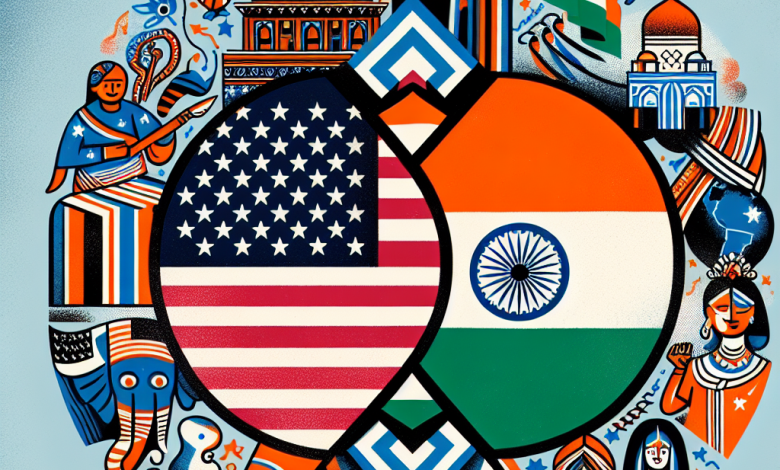
US Election: Trump vs. Harris and Their Impact on India
The upcoming U.S. presidential election, potentially featuring a matchup between Donald Trump and Kamala Harris, has significant implications for India’s economic, geopolitical, and trade relations.
Analysis by TS Lombard suggests that this election could impact India’s trade ties, strategic positioning, and overall economic outlook. Historically, there has been broad bipartisan support in the U.S. for cultivating stronger relationships with India, largely due to shared interests like countering China’s influence, enhancing economic partnerships, and engaging with the growing Indian diaspora.
However, both candidates present unique perspectives that could affect these relationships in different ways.
If Trump were to win a second term, it may lead to increased trade tensions for India. His previous tenure saw him referring to India as a significant “abuser” of trade practices and implementing tariffs on Indian goods. Should he be re-elected, it is conceivable he might enforce a 10-20% tariff, which would severely impact India’s exports, given that the U.S. is its largest export market. In retaliation, India would likely impose corresponding tariffs, akin to previous actions taken after Trump enacted tariffs in 2018. This could create costly trade friction for both countries and result in inflationary pressures in India, influenced by heightened tariffs on Chinese imports—complicating India’s already delicate economic balancing act.
Moreover, a second Trump presidency could introduce macroeconomic instability in India. His potential trade confrontations with China and others might spur global inflationary pressures, adversely affecting Indian trade and monetary policy. The Reserve Bank of India may have to adopt a more stringent monetary stance to combat inflation and stabilize the rupee which could, in turn, inhibit India’s growth. Analysts predict a GDP growth forecast for FY25 at around 7%.
Conversely, Kamala Harris, expected to align closely with the policies of the current Biden administration, could offer India a more predictable and stable partnership. While her administration might not introduce significant risks to trade, her firm stance on human rights and democracy could create some diplomatic tensions. Nevertheless, her approach to trade is likely to be characterized by quiet negotiations to resolve issues, avoiding the large-scale confrontations that marked Trump’s tenure.
Geopolitically, both candidates would prioritize India as a crucial ally in addressing China’s ambitions in the region. However, Trump’s potentially more lenient approach to Russia might facilitate India’s ability to sustain its strategic oil imports from that country, thus enhancing its energy security. In contrast, a Harris administration is expected to adopt a tougher stance on Russia, posing challenges for India’s reliance on Russian energy, particularly if stricter sanctions are enforced.
On the technology and defense front, continuity is expected regardless of the candidate. Both Trump and Harris are anticipated to back India’s initiatives to strengthen its defense capabilities and expand strategic technology collaborations, particularly in critical sectors like telecommunications, semiconductors, and essential minerals. Amid ongoing U.S.-China tensions, collaboration in strategic and technological areas between the U.S. and India is poised to deepen, irrespective of the electoral outcome.
 GOOGL
GOOGL  META
META 


